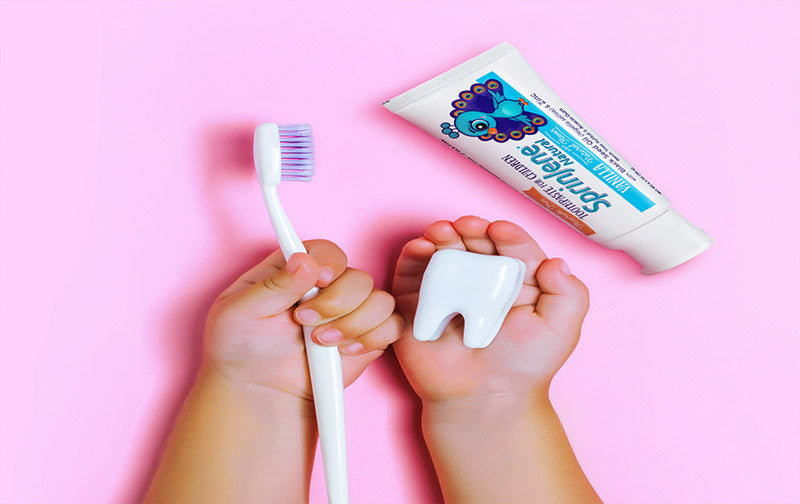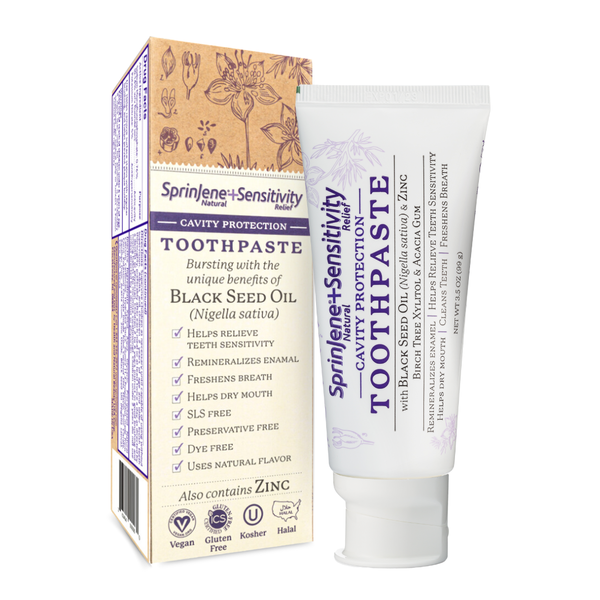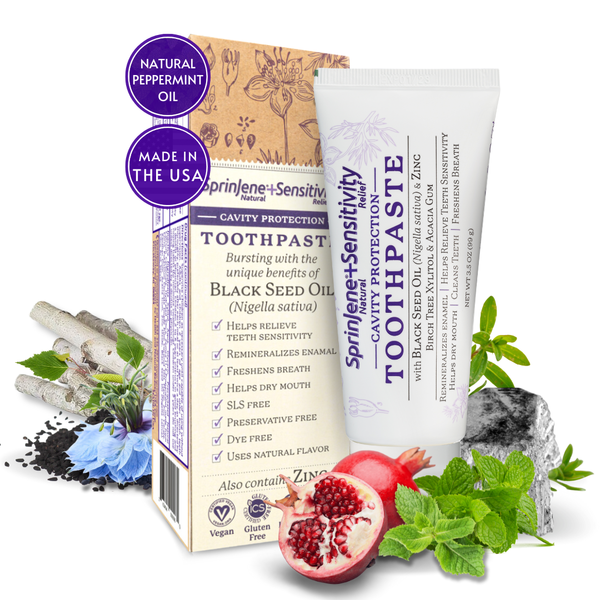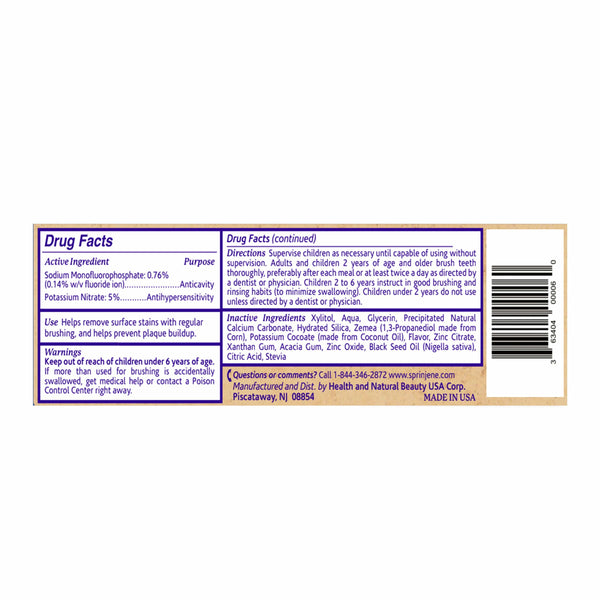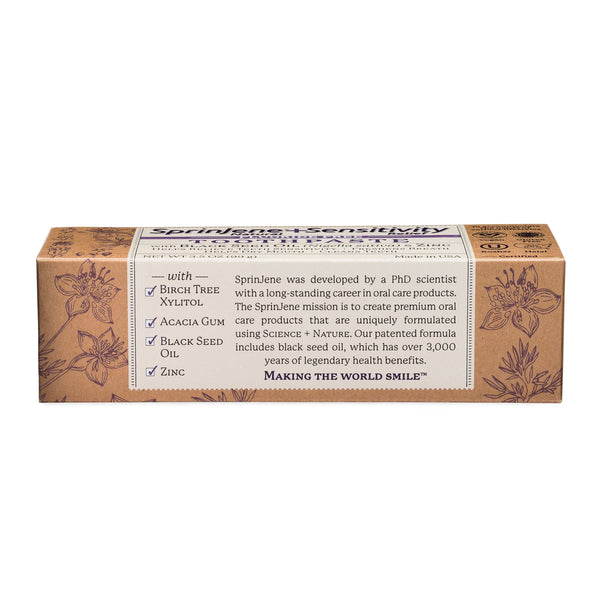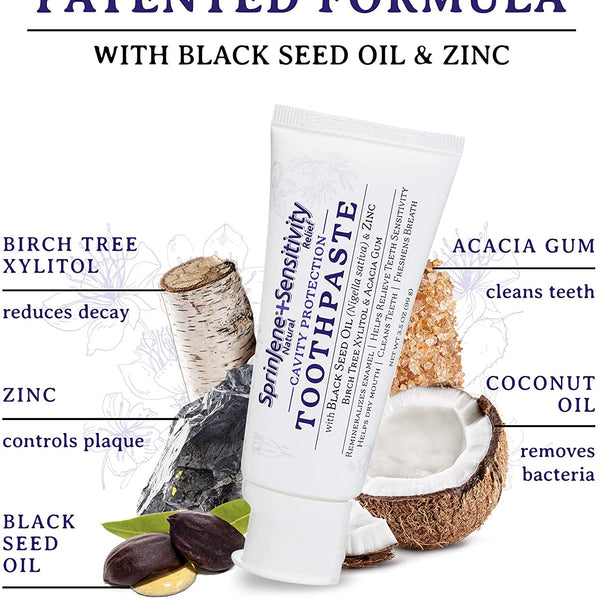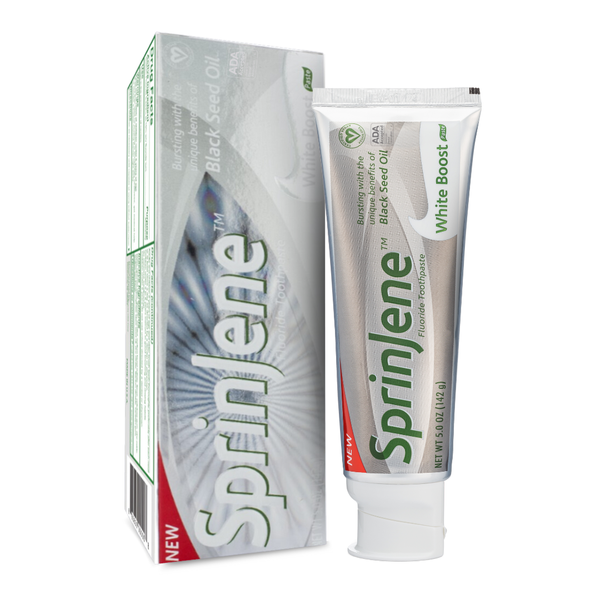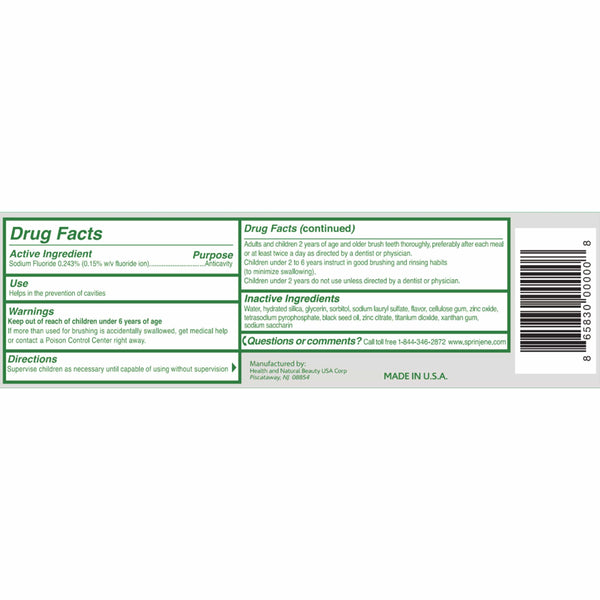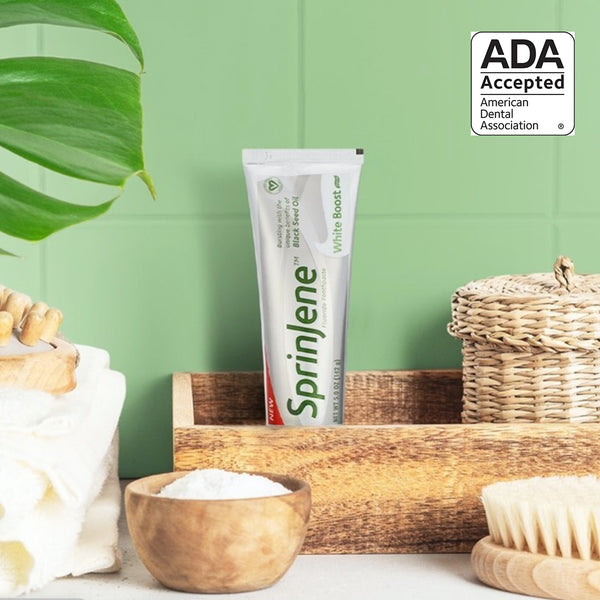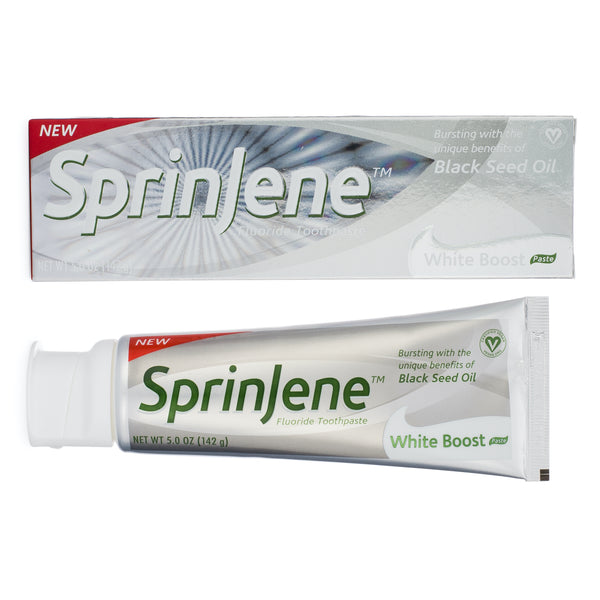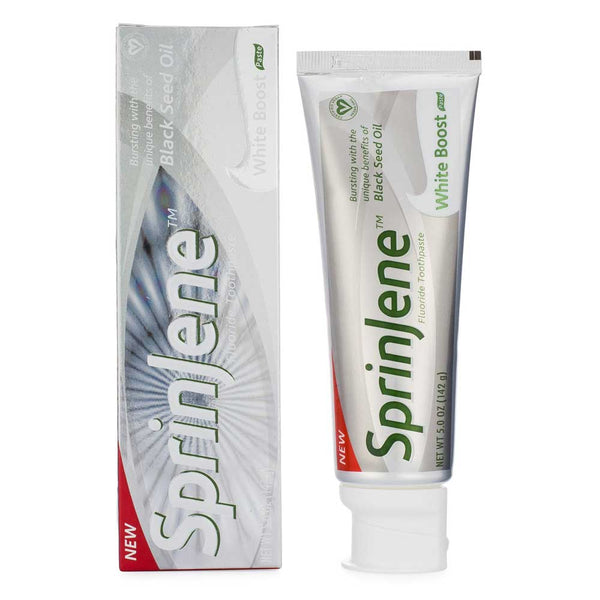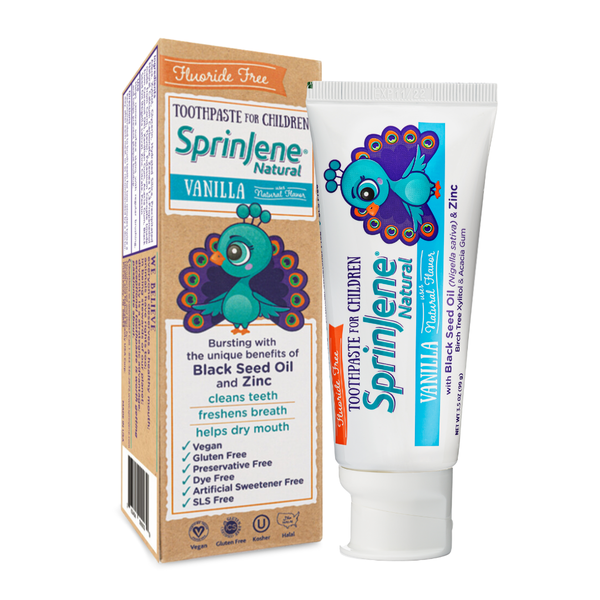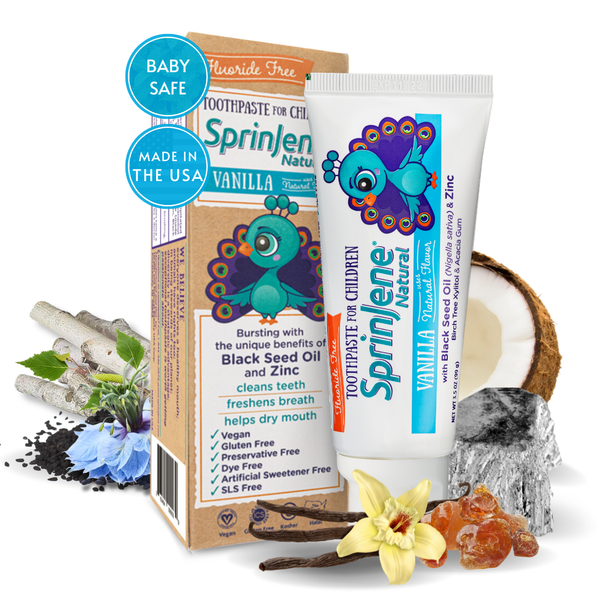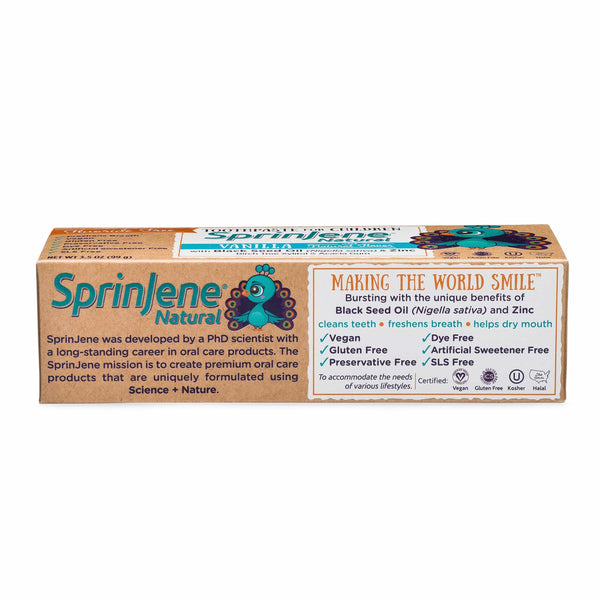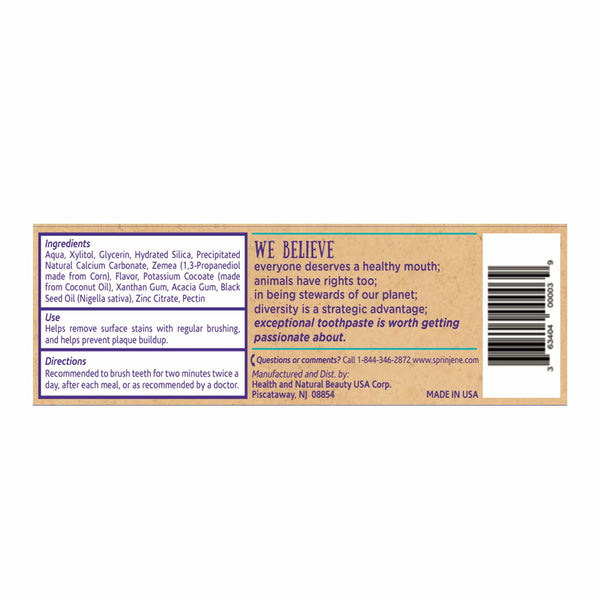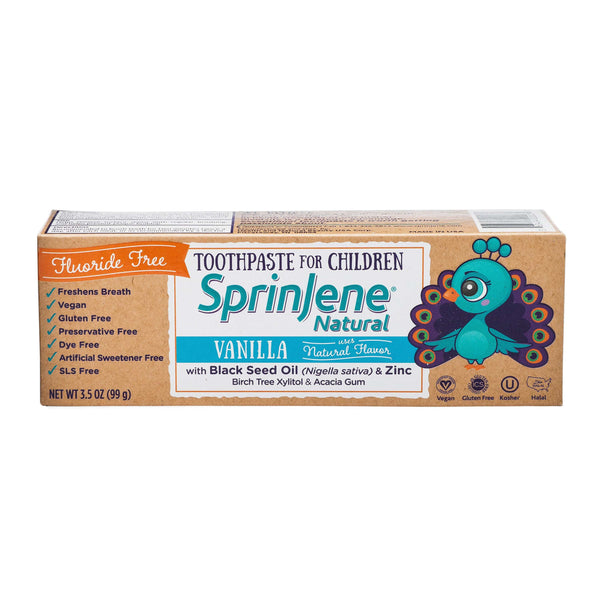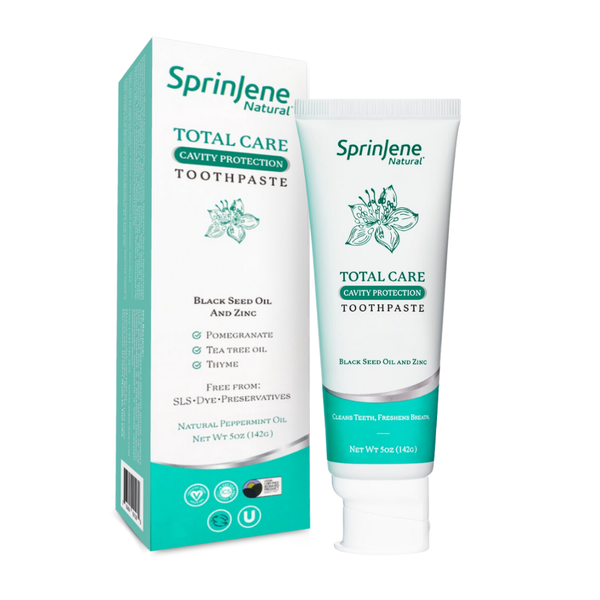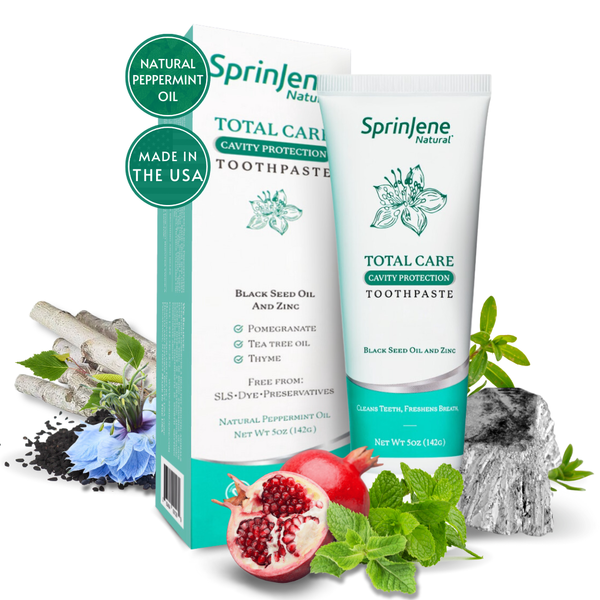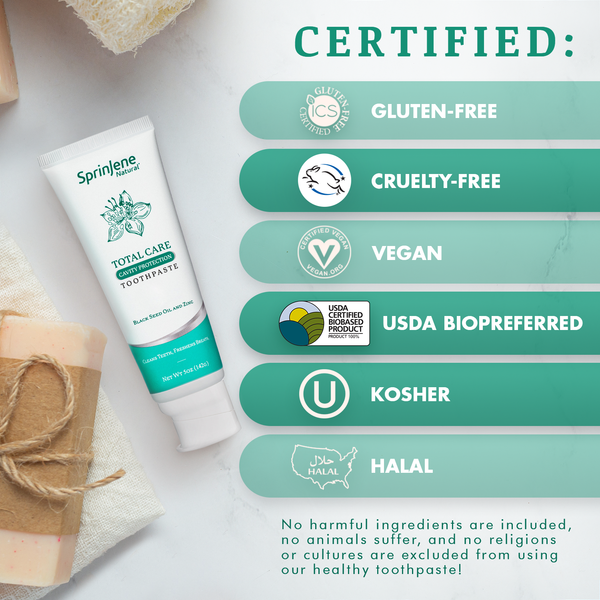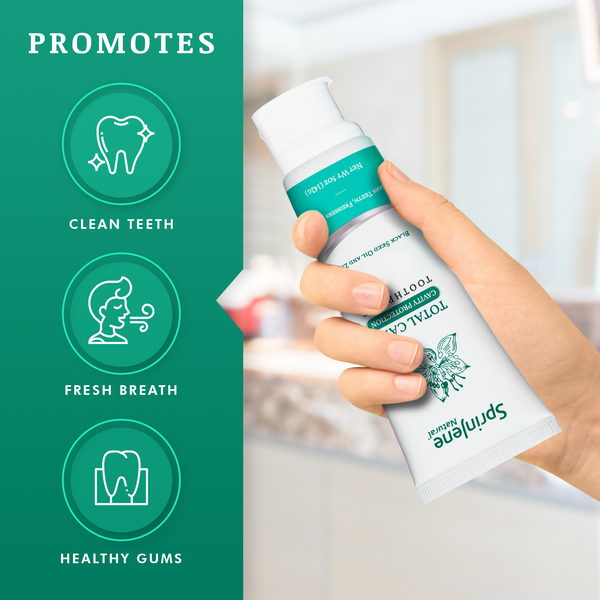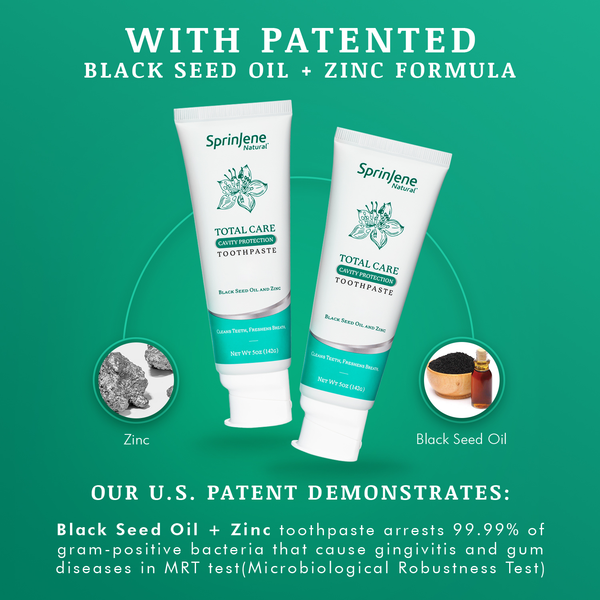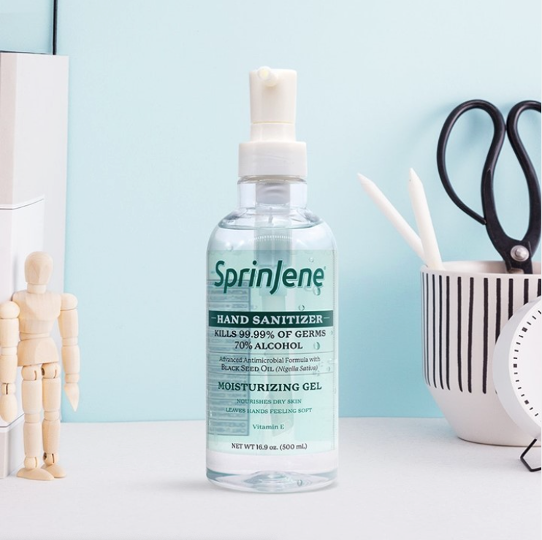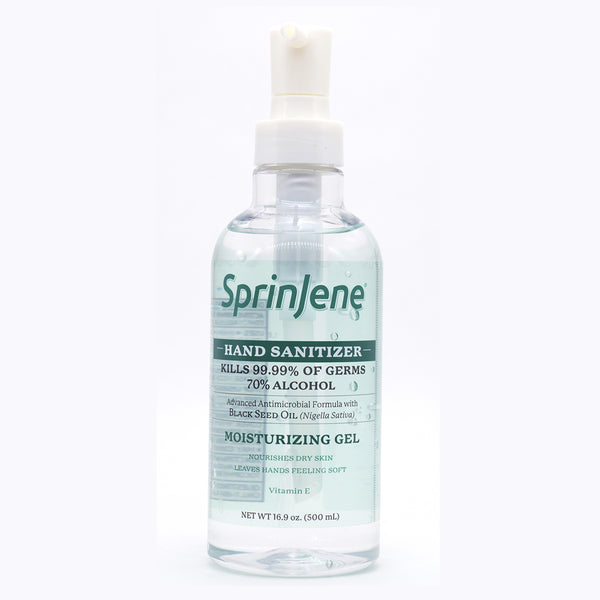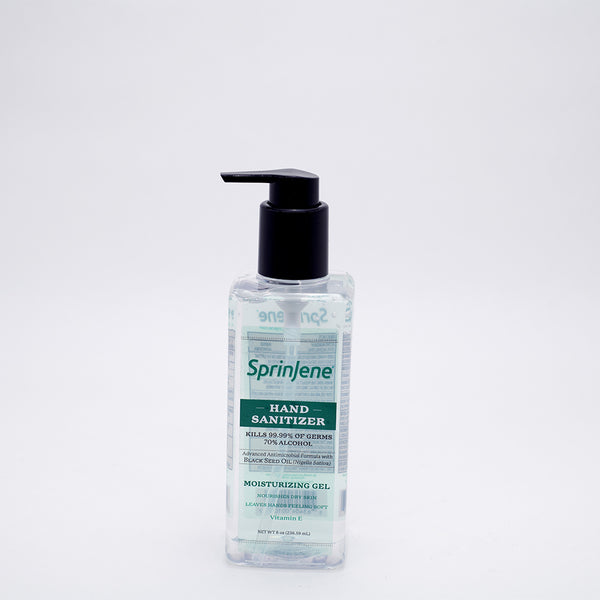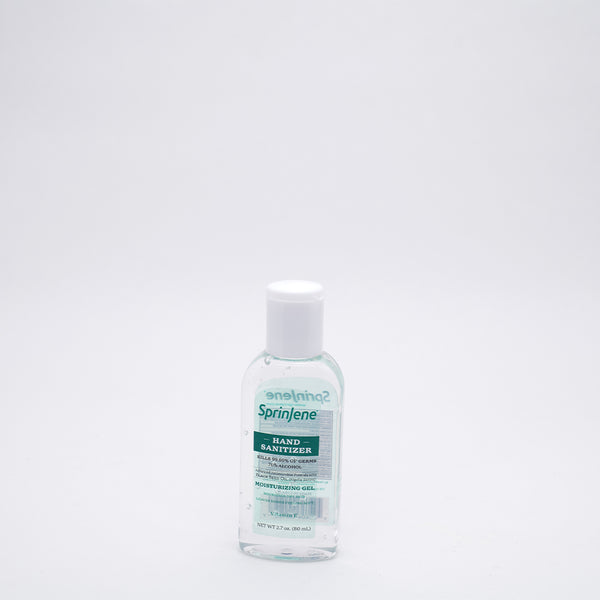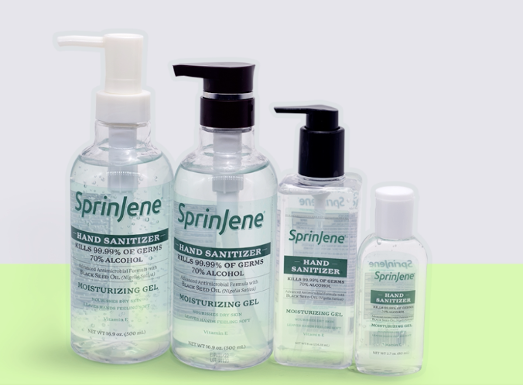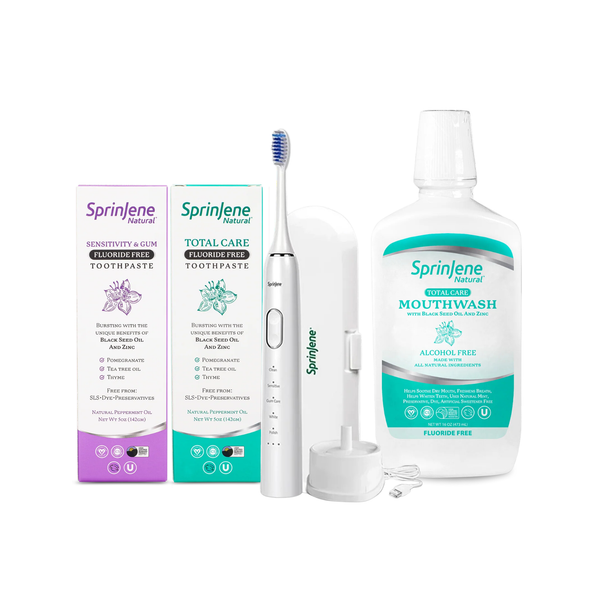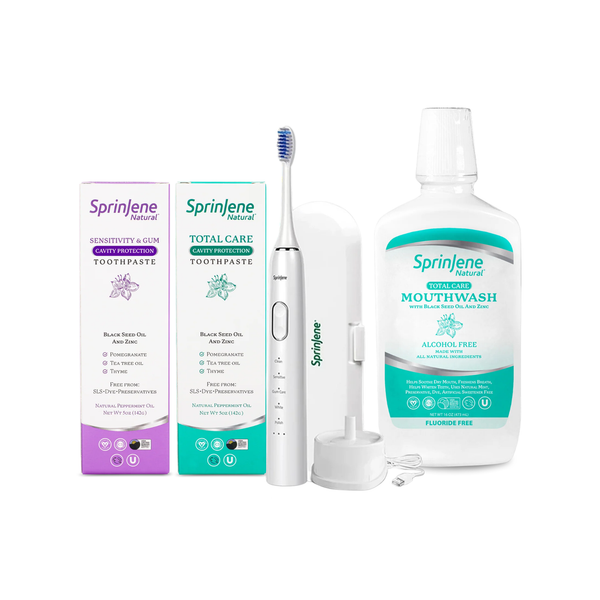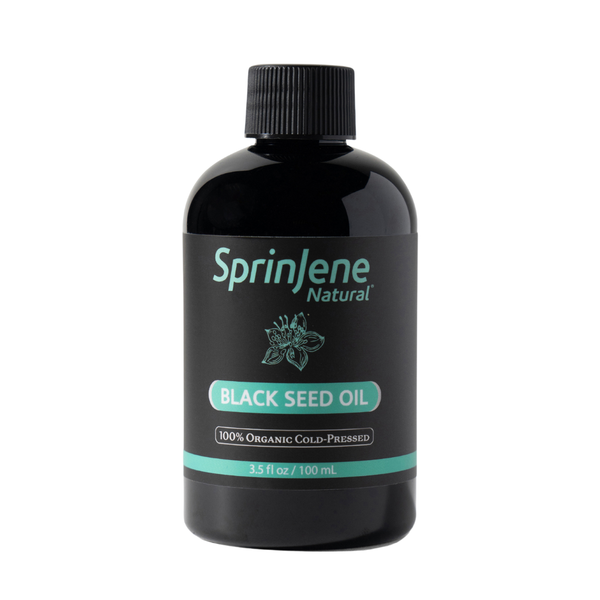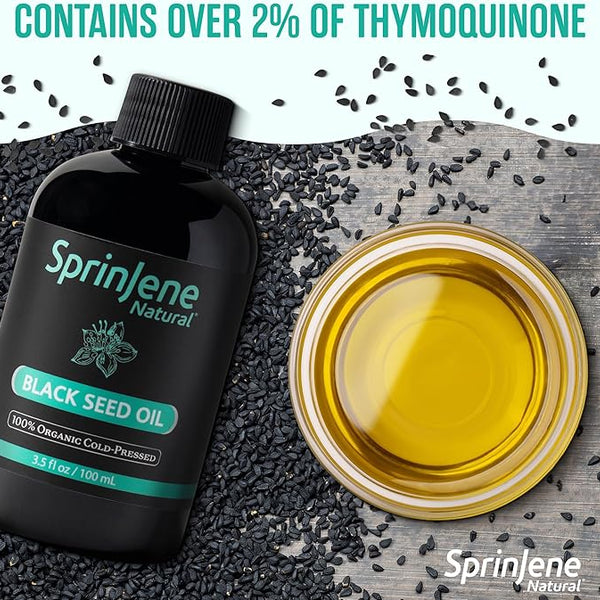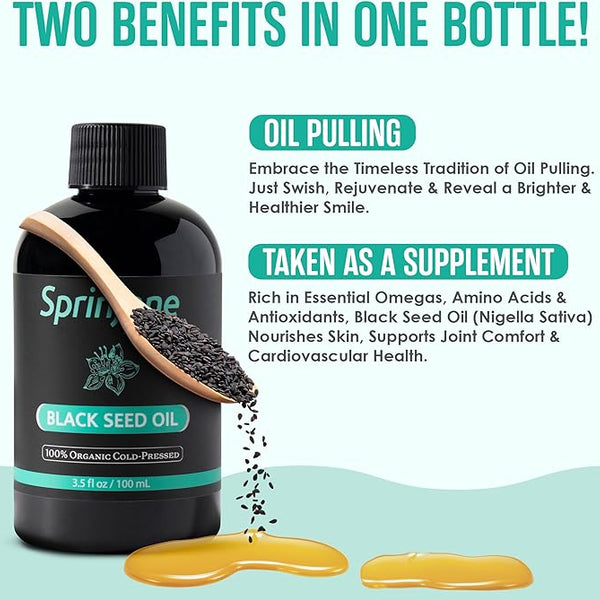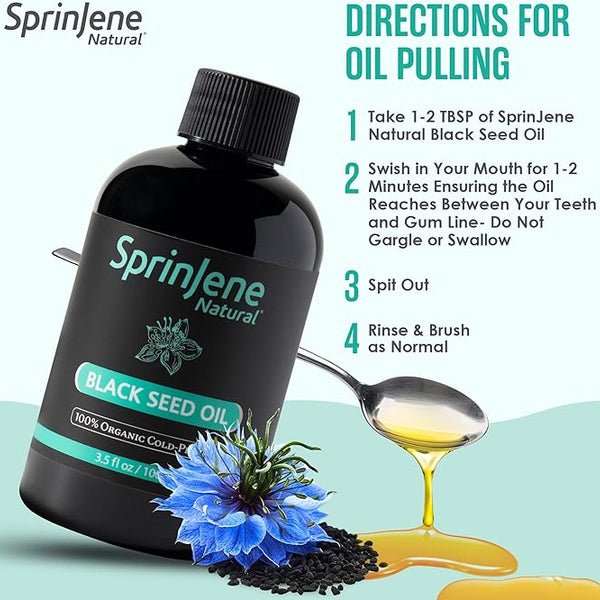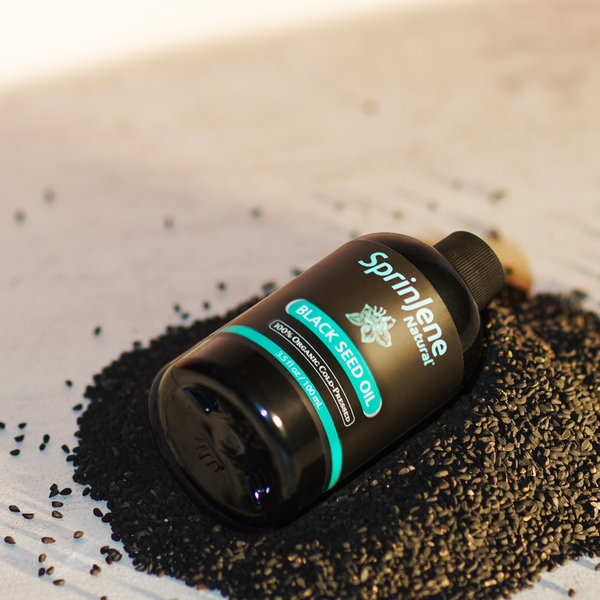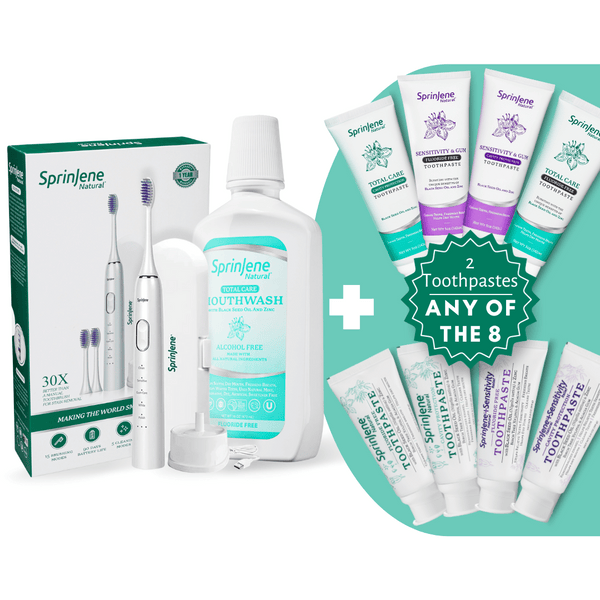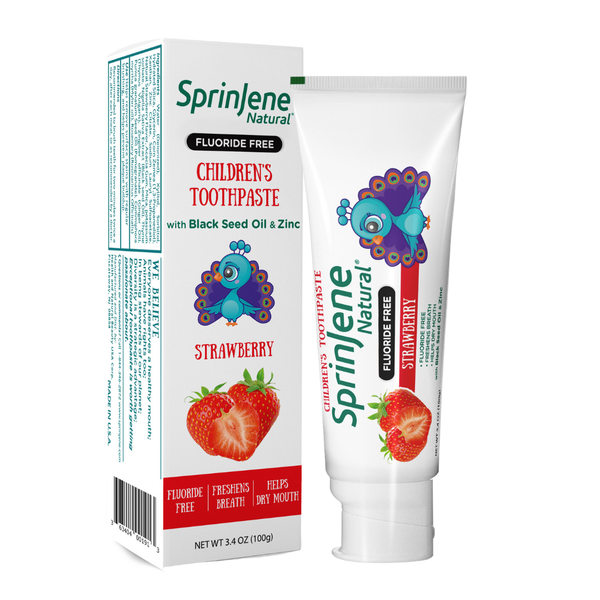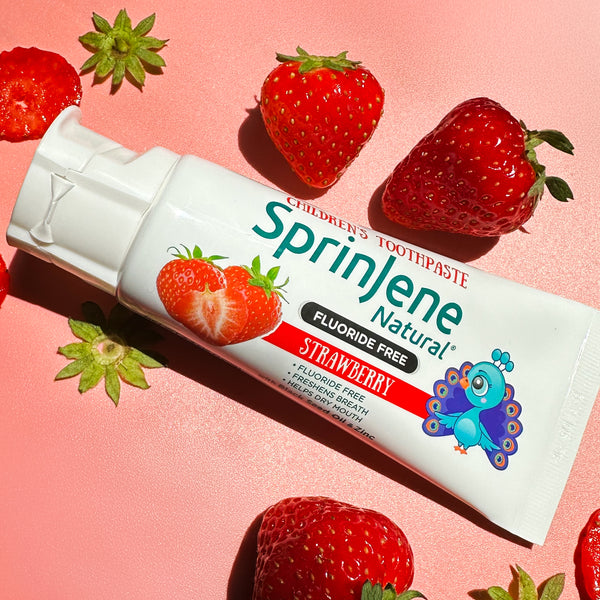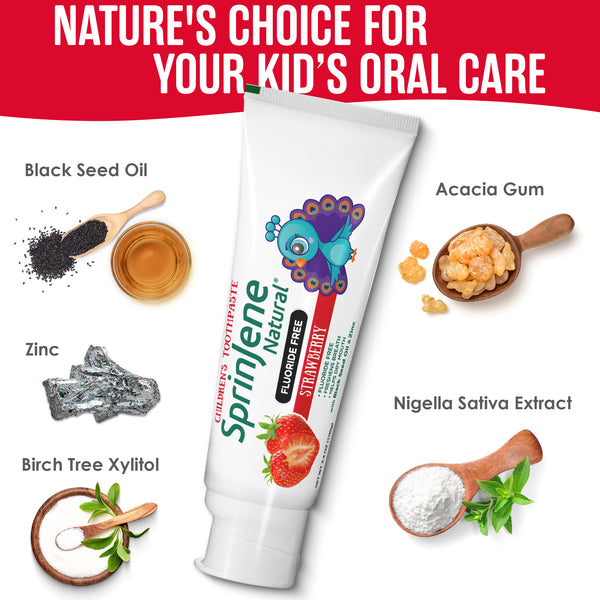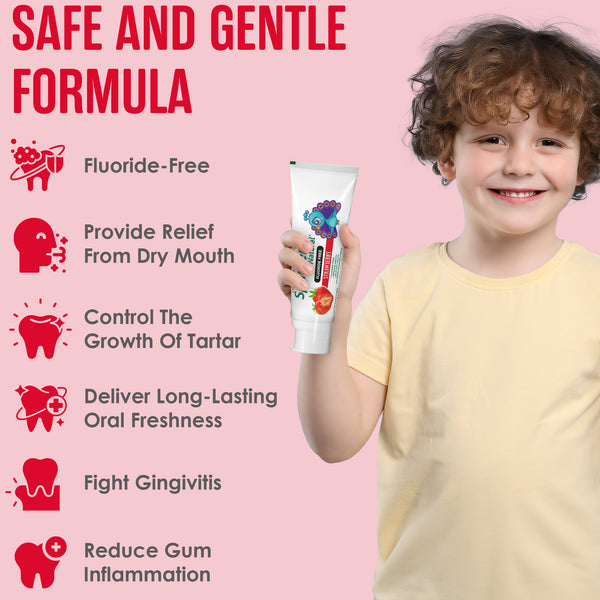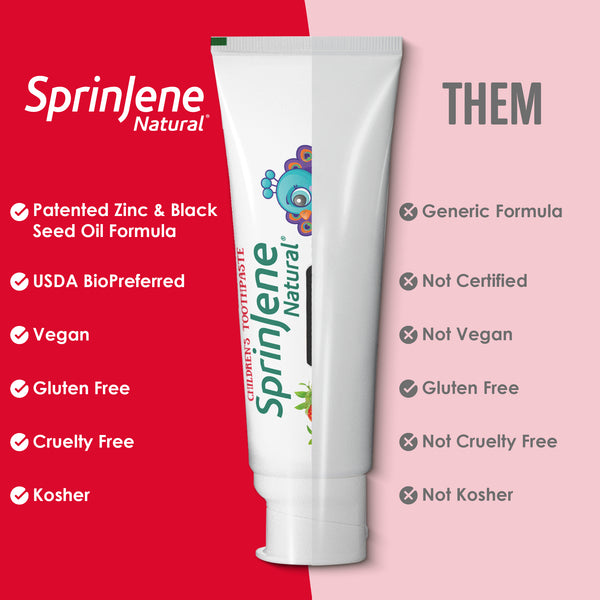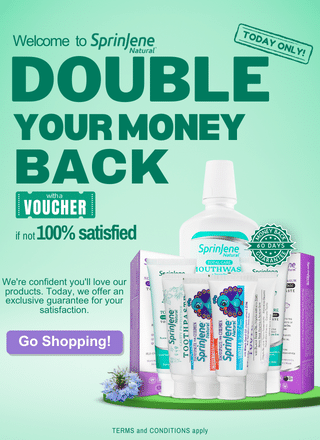People use it every day, morning, night, and sometimes in-between meals. There are few products on the market that are used as consistently as toothpaste. Believed to be invented by the Egyptians around 5,000 BC, the first toothpaste was a powder consisting of harsh abrasives including powdered ash and pumice. Other cultures later utilized frayed twigs, crushed bones and oyster shells. Eventually, in the late 1800s, toothpaste started being mass-produced in the United States.
There still remain ingredients in modern-day brands that should be avoided. In recent years, the introduction of natural toothpaste has provided consumers with healthier options. Natural toothpastes do not contain artificial colors, flavors, or sweeteners, and are produced without harsh chemicals and endocrine disruptors including Triclosan—a toxic pesticide now commonly used as an antibacterial agent by some mainstream toothpaste brands and a host of other personal care products, mainly hand soap.
Another chemical found in mainstream toothpaste is sodium lauryl sulfate (SLS), also known as sodium dodecyl sulfate, a widely used surfactant in cleaning products, cosmetics, and personal care products. SLS is a highly effective surfactant commonly used to remove oily stains and residues. It is found in high concentrations in industrial products, including engine degreasers, floor cleaners and car cleansers. According to the American College of Toxicology, sodium laurel sulfate may stay within the body for up to five days, accumulating in the heart, liver, lungs and brain. When combined with certain other chemicals, Sodium laurel sulfate transforms into nitrosamines, a class of powerful carcinogens that cause the body to absorb harmful nitrates. SLS is also used in lower concentrations in household and personal care products, such as cleansers, toothpastes, shampoos and shaving lotions.
Propylene glycol is an active component in antifreeze. It acts as a wetting agent and surfactant in toothpaste. The Material Safety Data Sheet for Propylene glycol warns that the chemical can be rapidly absorbed through the skin, with prolonged contact leading to brain, liver and kidney abnormalities. The EPA does not allow its employees to handle Propylene glycol without wearing protective eyewear and gloves, yet it doesn’t stop the chemical from being used in toothpaste and other personal care products. Unfortunately, consumers must be vigilant and carefully research the ingredients commonly found in toothpaste and other personal care products currently on the market.
Fortunately for consumers, Dr. Sayed Ibrahim, the CEO and founder of SprinJene toothpaste, has made it his mission to deliver the most superior toothpaste formulation the market has ever seen. Ibrahim, a Ph.D. in organic chemistry, is also armed with 22 years of experience working for several of the largest personal care products in the world. His Parsippany, NJ,-based manufacturing facility produces the only toothpaste on the market today that is currently certified vegan, gluten-free, kosher, halal, and animal cruelty-free. SprinJene is made with the highest quality, all-natural ingredients, and most notably a unique, patented blend of black seed oil and zinc.
Zinc is a natural antibacterial agent that works synergistically with black seed oil to adhere to teeth and gums to continue working long after teeth have been brushed. The black seed plant has been known and used for its healing properties for thousands of years. When used orally, it helps to lubricate oral surfaces and kills bad bacteria while not harming probiotic bacteria. Other ingredients include coconut oil, which fights tooth decay; acacia gum, a natural organic binder that helps inhibit the growth of periodontal bacteria; birch tree Xylitol, which helps fight plaque by neutralizing plaque acids; natural mint flavor that provides fresh taste without harshness; silica micro pearls, known as “nature’s cleanser,” which gently, yet very effectively clean and whiten teeth; and Stevia, a non-carcinogenic, natural sweetener.
SprinJene also aids oral hygiene by providing relief from dry mouth, and controlling the growth of tartar and mineral buildup. It naturally fights gingivitis, and reduces gum inflammation. SprinJene has quickly gained popularity with the “natural lifestyle” consumer that prompted the launch of a sensitive teeth formula, as well as a version for children. More products are currently in the development phase and are expected to reach the market soon.
For more information, call 732-640-1830, email Inquiries@SprinJene.com, or visit SprinJene.com
By Brielle Bleeker Natural Awakenings magazine.

